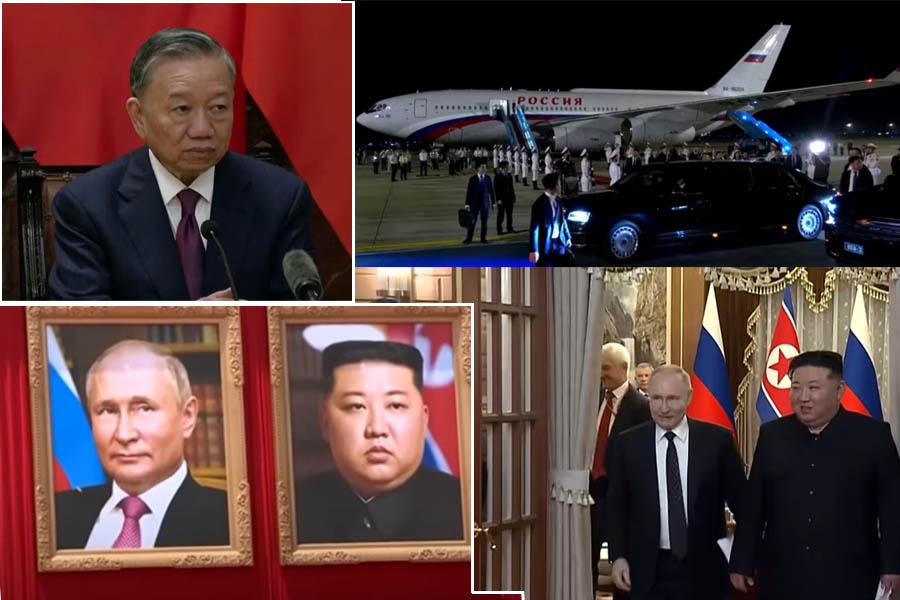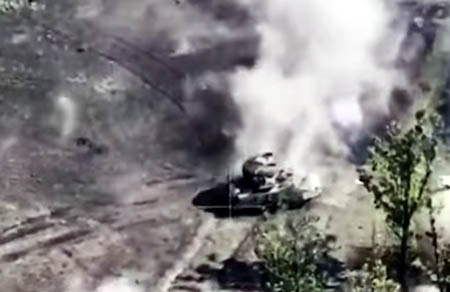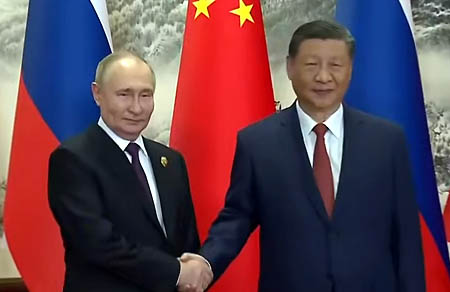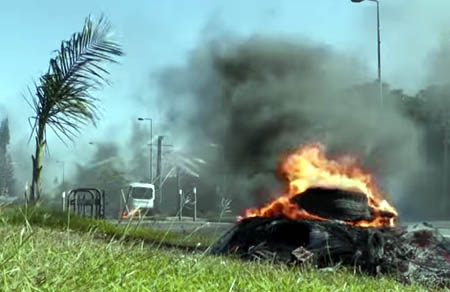
In a historic move that’s shaking the foundations of global diplomacy, Russian President Vladimir Putin recently visited Pyongyang, signaling a significant shift in international alliances. This landmark visit, the first of its kind, has seen Putin and North Korean leader Kim Jong-un delve into deep discussions, reportedly sharing “pent-up inmost thoughts.” Amidst widespread international condemnation following Russia's actions in Ukraine, this burgeoning partnership promises to reshape the geopolitical landscape.
The two leaders discussed enhancing economic and security cooperation, with potential agreements hinting at strategic military partnerships. This alliance, while controversial, showcases both nations’ intent to stand resilient against global pressures. Analysts predict that this visit will lead to strengthened economic ties and possibly military collaborations, adding a new dimension to their relationship. This alliance is a testament to their determination to navigate through diplomatic isolation, fostering a united front in the face of international scrutiny.
Controversy in Vietnam: Putin's Red Carpet Welcome
Following his pivotal visit to North Korea, President Putin’s arrival in Vietnam has sparked significant controversy, particularly from the United States, Vietnam’s principal trade partner. The Vietnamese leadership, led by President To Lam, greeted Putin with a red carpet, underscoring their historical ties and mutual interests.
Putin's discussions in Vietnam are centered around bolstering economic, educational, and energy cooperation, with defense issues and the Ukraine conflict also likely topics of private talks. Despite Vietnam’s neutral stance on the Ukraine conflict, the U.S. has condemned the visit, emphasizing that no nation should offer Putin a platform amidst the ongoing conflict.
This visit highlights Vietnam’s delicate diplomatic balancing act. Historically aligned with Russia, especially during the Vietnam War era, Vietnam continues to maintain strong ties, evident in its use of Russian military equipment and partnerships in oil exploration in the South China Sea. However, Vietnam also values its trade relationships with China, the United States, and Europe, necessitating a careful diplomatic approach to appease all sides.
Vietnam’s warm reception of Putin, while significant, also reflects its strategic diplomacy, ensuring it remains a friend to all amidst a complex global terrain. Washington’s rebuke underscores the tensions, but Vietnam’s historical loyalty to Russia and its current geopolitical strategies ensure a nuanced diplomatic stance.
The Drone War: Ukraine vs. Russia’s Electronic Warfare
In the technological battleground of modern warfare, Ukraine is rapidly advancing its drone capabilities to counter Russia’s sophisticated electronic warfare tactics. Ukraine’s ISR Defence has upgraded its drones with advanced components to withstand and counteract Russian jamming signals. This evolution signifies the critical role of drones in contemporary conflicts, where both nations are in a relentless race to outdo each other in electronic warfare.
Ukraine’s enhancements aim to make its drones more autonomous and resilient, underscoring the pivotal role of technological innovation in the ongoing conflict. This high-stakes duel has drawn significant attention from Western observers, highlighting the intense and ever-evolving nature of modern warfare.
Biden’s Dual Challenge: Green Energy and China
President Joe Biden faces a complex dilemma as he balances his administration’s push for renewable energy with a tough stance on China. To protect American industries, the administration has imposed barriers on Chinese clean-energy imports, including solar panels and batteries. These measures aim to safeguard American jobs but risk slowing the growth of the renewable energy sector.
Recently, the reintroduction of duties on China-based solar panel manufacturers and the backing of an antidumping petition by the International Trade Commission have further complicated matters. As the presidential election approaches, Biden’s challenge lies in maintaining this delicate balance, ensuring the growth of green energy while protecting domestic industries.
Geopolitical Tensions: The Cuba-Russia Connection
Amid escalating global tensions, Cuba’s strengthening ties with Russia have raised alarms in the United States. A recent visit by a fleet of Russian warships, including a nuclear-powered submarine and a frigate, to Havana has drawn significant attention. These vessels, armed with advanced weaponry, engaged in military drills just 90 miles from Florida, showcasing a display of military cooperation that supports Cuba’s communist government and its ally, Venezuela.
While the U.S. monitors the situation closely, Cuba’s foreign ministry has assured that the vessels were not armed with nuclear weapons, despite Russia confirming the presence of hypersonic missiles. This visit underscores the deepening alliance between Cuba and Russia, echoing Cold War tensions and highlighting the complex dynamics of modern geopolitics.
Horizon, In a dramatic culmination of escalating geopolitical maneuvers, Russian President Vladimir Putin's historic visits to North Korea and Vietnam have set the stage for a significant realignment of international alliances. His unprecedented trip to Pyongyang, where he shared deeply personal discussions with Kim Jong-un, marked the beginning of a strategic partnership poised to reshape global power dynamics. This move was swiftly followed by a controversial visit to Vietnam, met with a red carpet welcome from President To Lam, despite sharp rebukes from the United States. Concurrently, Ukraine's advancements in drone technology to counter Russian electronic warfare signal a relentless technological arms race, while Cuba's fortified ties with Russia, exemplified by the docking of a Russian nuclear-powered submarine in Havana, echo Cold War-era tensions, showcasing a world teetering on the edge of a new geopolitical order.
Thank you for reading: globalpostheadline.com





